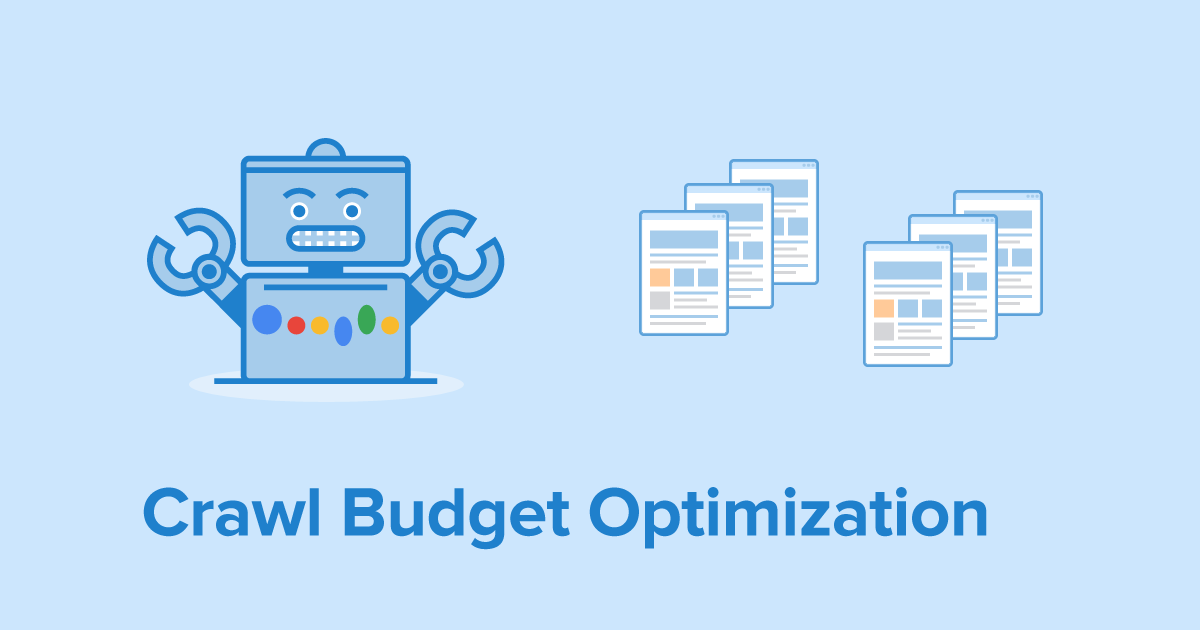
How to Optimize Crawl Budget for SEO?
What Is a Crawl Budget?
Crawl budget is a metric used to indicate the number of times a search engine crawls the web pages of a site within a given period of time.
The purpose of the crawl is to rank web pages in search results based on the quality, performance, and consumption of data by users. This means that the more careful and updated the digital content of a web page is, the more likely it is to be crawled frequently.
Why Is Crawl Budget Important in SEO?
The positioning of a website within search engines and, consequently, organic traffic seem to be associated with the number of times its pages have been crawled.
Considering that for a brand it is essential to appear among the first results, the crawl budget becomes an important metric to take into account in any digital marketing strategy. This means offering a good user experience and providing updated content for Google or any other search engine to crawl the pages frequently.
How to Optimize Your Crawl Budget?
Allow Important Pages to be Crawl
Ensure that your Robots.txt file is up to date to guarantee that all of your most important pages are crawled. You can hire an SEO agency to manage the robots.txt file to ensure that everything is covered efficiently. Within seconds, with your SEO agencyteam, you’ll be able to choose which marketing pages are crawled and which are not, making it easier for search engines to locate what they’re looking for.
Check for any Redirect chains
This is a common-sense method, and it is essential to maintaining your marketing website healthily. In an ideal world, you wouldn’t have a single redirect chain on your entire domain. But for a big website, it’s a challenging effort – 301 and 302 redirects will inevitably arise.
However, when linked together, many of those might significantly reduce your crawl limit to the point where the search engine’s crawler may stop crawling before reaching the page you need indexed.
Although a few redirects here and there may not cause significant harm, it is something that everyone should be aware of. If you want your website to make more profit, you should regularly check for any redirect chains.
Use HTML Whenever Possible
Talking about Google, its crawler has gotten a lot better at crawling JavaScript. But it’s also adequate at crawling and indexing Flash and XML.
On the other hand, other search engines aren’t quite there yet. As a result, SEO firms in Singapore are aware of utilising HTML whenever possible. That way, there’s no jeopardising your website odds against any crawler.
Get rid of HTTP errors
If you’re unsure what will eat into your budget, 410 and 404 pages are two of the most common. And they can also negatively impact the user experience. This implies you must be aware of when these digital page issues occur and take steps to correct them. That’s why having an SEO agency will be helpful. As they can conduct a complete website audit to identify any pages that may have difficulties and correct them as soon as possible.
Sitemap updates
You should constantly make sure that your XML sitemap is maintained and updated regularly. So the bots can figure out where each of these internal links leads faster. These URLs make up a significant portion of the sitemap. You’ll also want to double-check that it refers to the most recent version of your robots.txt.
Take Care of Your URL Parameters
Remember that crawlers treat different URLs as individual pages, wasting a significant crawl budget. Again, informing Google about these URL parameters will be a win-win situation. It will reduce your crawl money while also avoiding duplicate content problems. As a result, make sure they’re added to your Google Search Console account.


